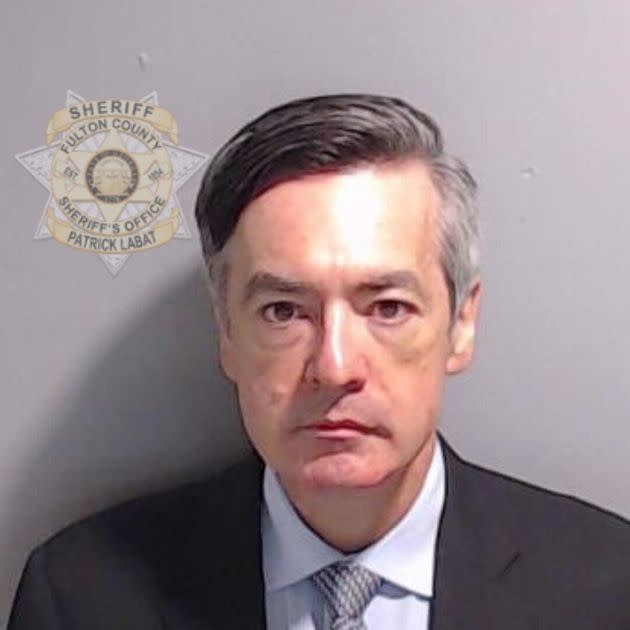Trump Co-Defendant Kenneth Chesebro Pleads Not Guilty In Georgia Case
- Oops!Something went wrong.Please try again later.
- Oops!Something went wrong.Please try again later.
Kenneth Chesebro, the attorney accused of concocting the fake electors strategy deployed by former President Donald Trump in 2020, has pleaded not guilty on seven criminal charges.
Chesebro’s plea in the case brought by Fulton County District Attorney Fani Willis was filed Thursday and also waives his right to a formal arraignment on multiple state charges, including counts of racketeering and conspiracy to commit forgery. His trial is scheduled to begin Oct. 23.
Chesebro also asked the court to sever his trial from co-defendant Sidney Powell, a former Trump campaign lawyer who has also pleaded not guilty, arguing that they worked separately with Trump and had no direct contact with each other.
In that request, Chesebro’s lawyers slammed “attempts by the State to incorrectly paint Mr. Chesebro as the alleged ‘architect of the Trump elector scheme.’”

In this handout provided by the Fulton County Sheriff's Office, former Trump lawyer Kenneth Chesebro poses for his booking photo on Aug. 23 in Atlanta, Georgia.
But investigations, including the lengthy probe by the House’s Jan. 6 committee, have found Chesebro to be the main driver behind the Trump’s campaign’s fake electors idea, which attempted to swap out legitimate electoral certificates in seven states, including Georgia, that President Joe Biden won in favor of fraudulent ones declaring Trump the winner. The scheme fell apart when former Vice President Mike Pence refused to comply with the plan.
In a Dec. 6, 2020, memo Chesebro wrote, revealed by The New York Times earlier this month, the lawyer pitched the plan in writing.
“I recognize that what I suggest is a bold, controversial strategy, and that there are many reasons why it might not end up being executed on January 6,” Chesebro wrote in the document. “But as long as it is one possible option, to preserve it as a possibility it is important that the Trump-Pence electors cast their electoral votes on December 14.”
Even if the U.S. Supreme court ultimately ruled that Pence couldn’t certify fake electors, Chesebro wrote, “letting matters play out this way would guarantee that public attention would be riveted on the evidence of electoral abuses by the Democrats, and would also buy the Trump campaign more time to win litigation.”
Chesebro and Trump are two of 19 defendants charged for their involvement in the effort to overturn Georgia’s 2020 presidential election results. Trump has also pleaded not guilty.
